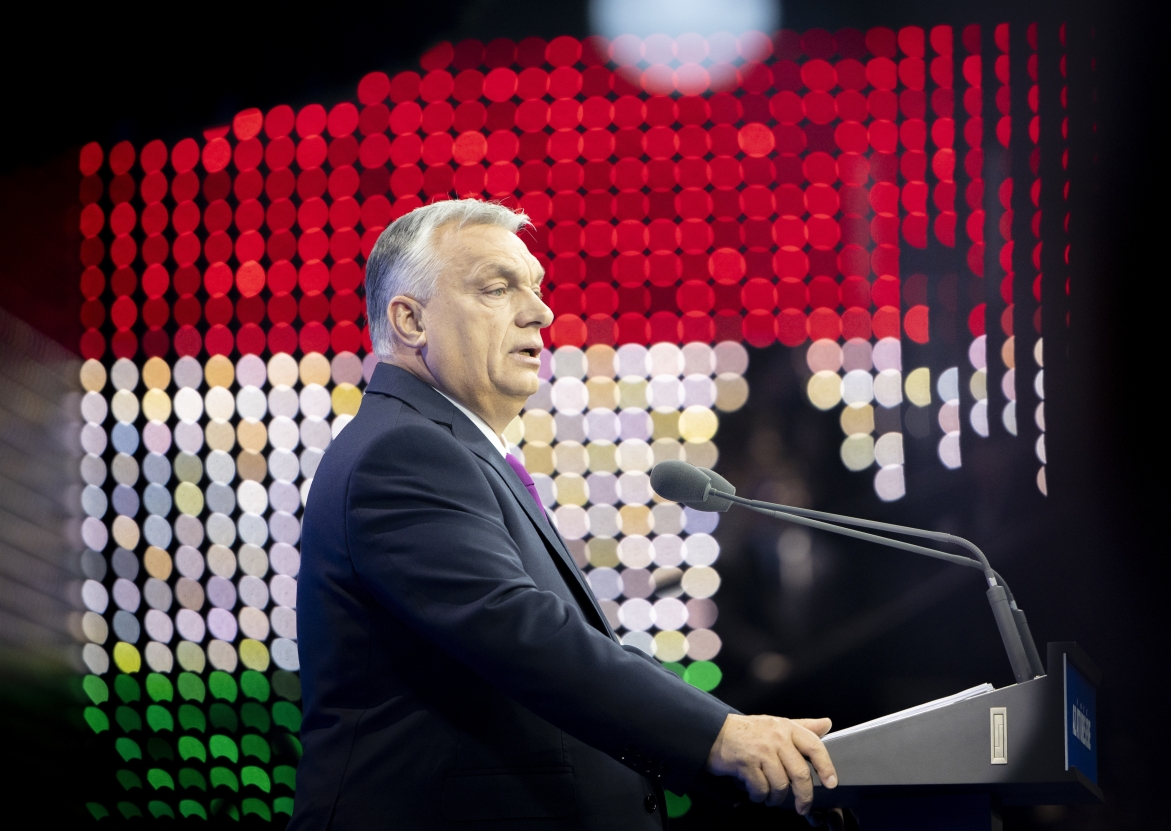
The Prime Minister said that a Hungarian opposition party has played an active role in a Ukrainian secret service operation.Continue reading

In his Kossuth Radio interview on Friday, Viktor Orbán spoke about Ukraine’s accession to the EU, the Ukrainian spy scandal and the 2026 budget. He touched upon the energy crisis as well, saying that EU Member States would rather help Ukraine than their own families.
“They want to hurt Russia with their energy policy, and through this they would help Ukraine, but Hungary has the opposite view,” the Prime Minister stated. He noted that, like him, Slovak Prime Minister Robert Fico was also interested in ensuring that energy remained affordable for the population. “There are no fools sitting in the prime minister’s chairs,” he said on the matter.
Mr. Orbán explained that the plan for Ukraine, which the European Union would help to implement, is to make it impossible to buy gas and oil from Russia. “If the Ukrainians succeed in getting the EU to ban Russian gas purchases, Hungary would have to pay an additional 800 billion forints (1.9 billion euros) per year for energy,” the Prime Minister said. He added that in this case, electricity bills would double and heating bills would quadruple.
He pointed out that
the majority of EU Member States do not want to help their own families and businesses with their energy policies, but want to harm Russia in order to help Ukraine.
The Prime Minister underlined that Hungary takes the opposite position, is at war with these Member States, and will not allow sanctions related to Russian energy to be extended to Hungary.
The Ukrainians are behind the policy of pushing for energy price increases, so it is not unreasonable to talk about a Ukrainian energy threat,
he added.
He also said that everyone had previously opposed the Slovak-Hungarian gas connection, but Slovakia now receives gas from Hungary. He added that the gas pipeline had also been built in the south, which was a major coordinated effort. According to Viktor Orbán, however, Türkiye is the key point, as energy also comes from there to Hungary.
@PM_ViktorOrban: “We must prevent the banning of Russian gas from Europe.” Speaking on Kossuth Rádió, he warned that cutting off Russian supplies would burden Hungary’s budget as much as the entire utility price reduction program.
️ “It’s useless to have pipelines if we’re… pic.twitter.com/NbSQL1j3xx
— Zoltan Kovacs (@zoltanspox) May 23, 2025
Orbán said that Western European leaders had, for some reason, decided to conclude an agreement with Ukraine on maintaining an army of around one million soldiers. In his view, Europeans would pay for this, meaning that instead of strengthening their own armies, Western Europe would rather pay Ukraine. He warned that
this could even pose a serious security risk for Europe, because in the end they could end up financing an army whose intentions would not always be friendly, or at least there would be no guarantee that they would be.
He emphasized that the question of Ukraine’s EU membership is related to this, because it is much easier to make pro-Ukrainian financial decisions if Ukraine is in the EU than if it is not. “We want to keep Ukraine out at all costs because if we let it in, it will suck up all our money like a sponge,” he stressed, adding that the price would be paid by Central Europeans, including Hungary. He therefore urged everyone to express their opinion on Ukraine’s EU membership in the “Voks 2025” referendum launched by the government. “Let us not let others decide over our heads,” he underlined.
“We have seen intense Ukrainian espionage activity in Hungary,” Orbán said of the latest scandal, noting that espionage is normal and commonplace at a low level, and even our allies “drop in here sometimes,” and vice versa. “However, we have noticed that Ukrainian activity has increased significantly in Hungary,” he added, while also saying that he believes
Ukraine’s goal may be to influence Hungarian public opinion in favor of the country’s accession to the EU.
In this regard, he highlighted that they had expected disinformation campaigns from the Ukrainians and that the secret service was prepared for this, but not for the Hungarian press and part of the opposition to side with the Ukrainians. Mr. Orbán also said that, in his opinion, the Tisza party had not substantively refuted the fact that it had established relations with Ukraine, including with the Ukrainian secret service.
Orbán emphasized that a “warmongering, pro-Ukrainian propaganda network” is operating in Hungary, and every day it “shoves pro-Ukrainian positions in our faces and into our heads.” However, the government has taken the necessary steps to counter this by submitting the transparency law to the National Assembly, he pointed out. He noted that it was well known that the opposition parties were pro-Ukrainian, as they support Ukraine’s membership, but it was not expected that the Ukrainian secret service “maintains such deep ties with them.”
Mr. Orbán described the bill as mild regulation compared to similar laws in the United States, for example. “I would have thought that there would be agreement on this,” he said, referring to the fact that, in his opinion, there could be national consensus on not allowing public figures and organizations to accept money from abroad.
The Prime Minister explained it was in the national interest that political and civil society organizations and the political media should not accept foreign funding. He explained that
the majority of Hungarian public opinion believes that those involved in politics should not accept foreign support, and that even the civil and pseudo-civil media organizations concerned accept this view in public.
He also noted that it is not the job of the Hungarian people to “constantly look behind the curtain” to see whether a civil society organization or a media outlet is writing its own opinion or is “in the pay” of foreign countries.
At the end of the interview, it was also mentioned that the Chinese company BYD had recently decided to bring its development center to Hungary, in addition to its factory in Szeged (southern Hungary). Orbán said in this regard that although Hungary is growing stronger, it is not yet strong enough to be at the forefront of technological development, which is why foreign investment is necessary. “We must always bring in the best,” stated the Prime Minister, adding that China is the best in electromobility. “This is a major success, and I am very pleased that we were able to bring it to fruition,” he noted.
Featured photo via MTI/Miniszterelnöki Sajtóiroda/Fischer Zoltán